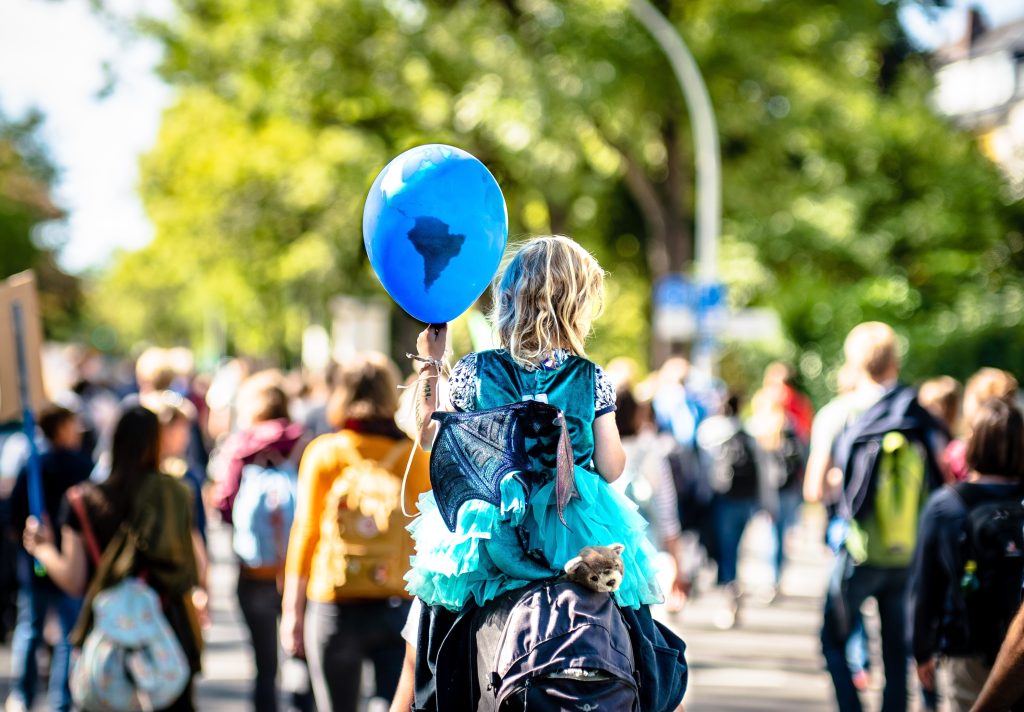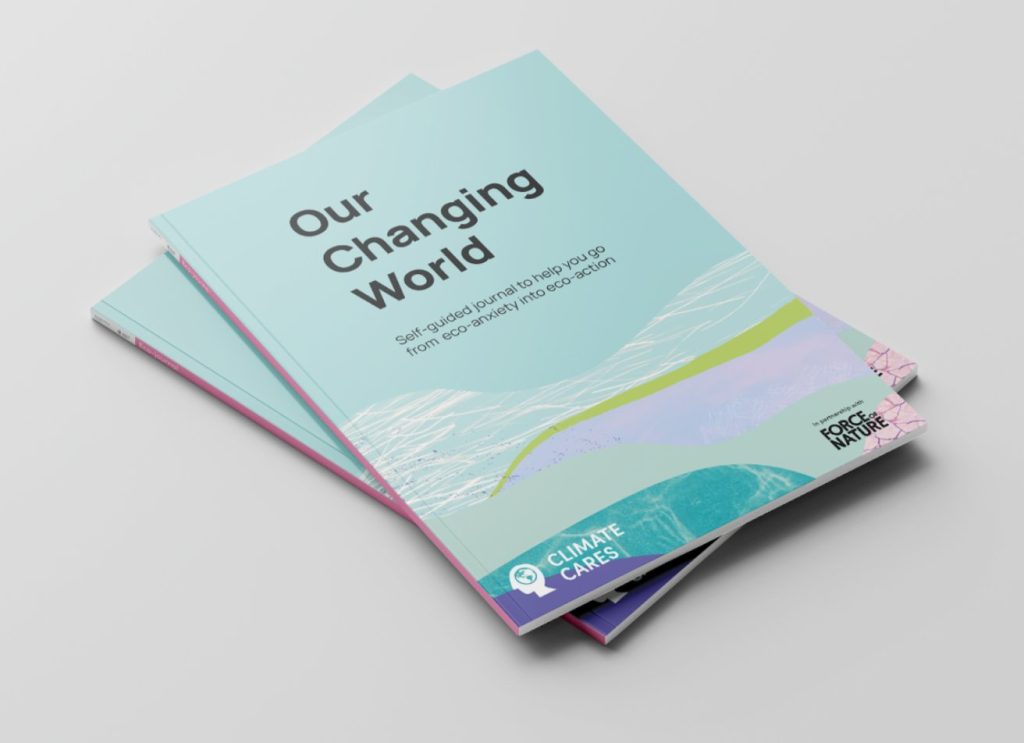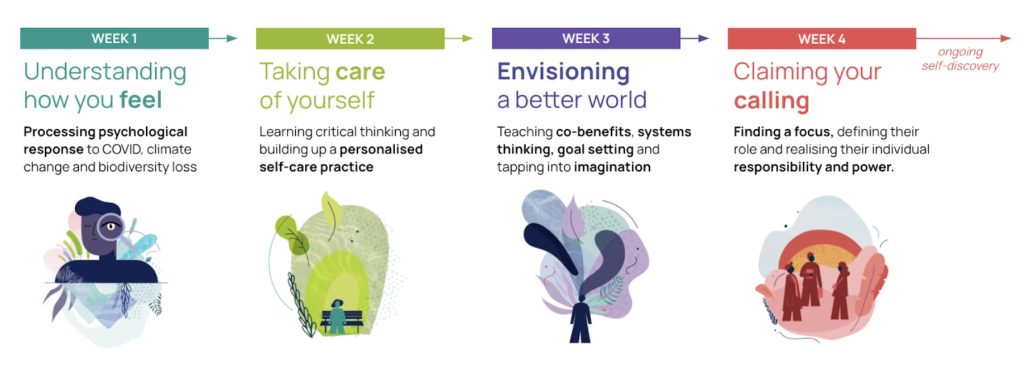
Environmental issues like climate change can bring up a wide range of feelings for people at different times. The feelings that arise are typically (though not always) uncomfortable ones, related both to the impacts of climate change and our sense of how they are being handled by people in positions of power.
These feelings arise in different amounts at different times for different people in different contexts – though there are a lot of things people tend to have in common too. Among the most common feelings are anger at those we hold most responsible, fatigue from our historic action, guilt about our historic inaction, despair that things may never get better, sadness about climate change’s impacts thus far, and worry about the future impacts of climate change.
Even though it may not feel like it, these uncomfortable feelings are generally healthy responses to the environmental issues we face. They show that a person is aware of what is happening in the world and that they care about those affected by them. They are not ‘bad experiences to get rid of’, but are signals of our compassion and humanity to be learned from. There is indeed a place for hope and a radically better world is indeed possible, but we can’t use these truths to ‘avoid’ our uncomfortable feelings – we need to accept and make space for our uncomfortable feelings too. Even uncomfortable feelings are warranted in times of crisis.
Why is it important to explore our emotions about climate change?
Exploring our climate-related emotions can be a self-awareness-building exercise, a self-care exercise, and a climate-protecting exercise all in one. Exploring these emotions can help us to clarify why we care about climate change (if we do), and to think about how the climate fits in with our wider lives and priorities. It can also help us to become aware of any patterns we fall into that are not serving ourselves or the climate in a way we are happy with. These patterns may include, for instance, neglecting our own needs, projecting our climate-related anger onto ourselves or onto others who don’t deserve it, exaggerating or minimising the importance of climate action within our control, or trying to ‘remove’ (rather than normalising) our climate-related anxiety.
We all slip and settle into patterns we’re unhappy with at different times – and that’s ok. Exploring our feelings and becoming aware of our tendencies is a great and necessary first step to thinking about how we might want to move forward – and no one but you can work out what makes sense for you.
The Climate Cares guided journal – a tool to help
Unfortunately, even people fortunate enough to have access to good information about the environment are likely to have never had support to process the feelings that arise from it. In the Climate Cares team at IGHI, we co-design tools designed to help people explore their feelings about climate change and other environmental issues.
One of these tools we developed is the Climate Cares guided journal. The journal is a physical, illustrated activity book that takes people through four weeks of activities offering lots of space for personal reflections. It was created collaboratively with young advisors (aged 16-24), mental health practitioners, and climate change professionals. Through a wide range of reflective and creative activities, it has the dual aim of trying to support a person’s mental wellbeing and their effectiveness in acting on the environmental issues they care about most, in whatever way is right for them (we don’t all have to fit the same mould!).
The Climate Cares guided journal: “Our Changing World: a guided journal to help you process our changing world and take action on the environmental issues you care about most”

We recently ran a pilot study offering 40 copies of this journal to young people aged 16-24 during the November 2021 COP26 negotiations. Here are some comments from people who tried out the journal:
“It was fantastic. I’d genuinely pay money for a journal like this to use full time. It’s made me think a lot about how I feel in general, and more specifically to do with climate.”
“I really enjoyed using it. It taught me a lot about my own views, attitudes, and reactions to the climate, and also highlighted what I actually want to happen and how I need to channel this energy into something more positive.”
“I really benefited from noting my thoughts and feelings. I could notice patterns in my emotions which usually I don’t have time to acknowledge.”

Interested in collaborating with us?
We’re currently looking for partners aligned in our desire to help people explore their climate-related emotions, to take effective environmental action if they want to, and to support their mental wellbeing while doing so. We want to offer the journal to as many people as we can either on its own or as part of wider educational, mental health, or environmental events. We are also running trials of the journal (adapted for local contexts) in other countries outside the UK too – thus far we have found that many principles embodied in the journal’s activities tend to transcend cultures well.
If you’re interested in learning more, collaborating, or supporting our work, please reach out to Pip and James at ClimateCares@Imperial.ac.uk. We’d be delighted to hear from you.
Caring for causes like climate change can be difficult, isolating, and emotional, but as we get to know both ourselves and connect with some of the millions of people around the world who want to see things change for the better, there is a lot of hope that can be found too.
“In moments where I face the worst of eco-anxiety, I remember how incredible it feels to be amongst a community that is fighting for our planet” – Dominique Palmer, Climate Justice Activist